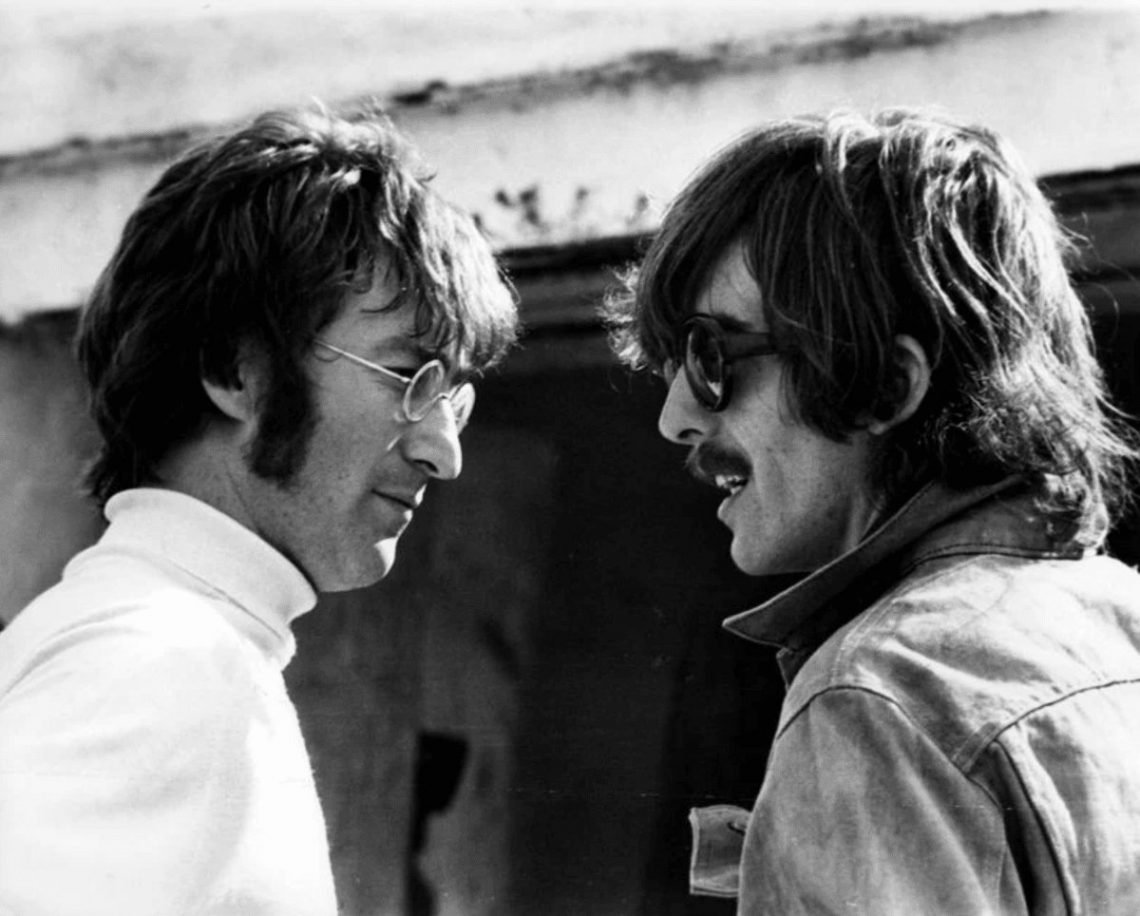Most collaborations within The Beatles usually came down to the friendship between John Lennon and Paul McCartney. While every member of the band was critical in turning them into the musical legends they are known as today, the dual songwriters at the heart of nearly every song helped turn them from another decent garage band out of Liverpool into rock legends, constantly pushing each other to see where their muse would take them next. Although George Harrison was typically marginalised from the rest of the band, Lennon inadvertently gave him one of his biggest hits.
Then again, Lennon was always willing to collaborate with Harrison as a musical big brother. Being one of the youngest in the group, Lennon had a certain protective spirit around Harrison in the early days, even encouraging him to come out of his shell by writing songs for him to sing, like ‘I’m Happy Just To Dance With You’ from A Hard Day’s Night.
As Lennon started to write his own masterpieces, Harrison began to hone his craft by writing original material. Instead of relying on McCartney or Lennon to help him, Harrison was usually left to his own devices, spending hours poring over different words until he found something that worked.
While the band were usually proud to showcase any song that Harrison had at his disposal, Lennon did often consider helping him to be a chore. Throughout the recording of Revolver, Lennon remembered how annoyed he was when the guitarist asked him for help finishing the lyrics to ‘Taxman’, begrudgingly accepting by making up different lines for the bridge.
Once the band neared the end of the 1960s, Harrison began writing songs that were equally as powerful as those of his bandmates. Throughout the recording of Abbey Road, both ‘Something’ and ‘Here Comes the Sun’ would be two of the landmark tracks from the album, far outshining many of Lennon’s or McCartney’s compositions.
Around the same time, Harrison was also looking to make his first solo album when he came up with the chords and melodic structure for ‘All Things Must Pass’. While he had the basic skeleton of the song ready for Lennon and McCartney during the sessions for what would become Let It Be, it didn’t fall into place until Lennon mentioned a subtle lyric change.
When doing different run-throughs of the song in the documentary Get Back, Harrison can be heard working with different lyrics for one of the verses until Lennon steps in. Instead of looking to make a logical line, Lennon suggests the line “a mind can blow those clouds away”, remarking that it would be “a bit more psychedelic”.
While the song would undergo various changes in style and structure by the time it landed on All Things Must Pass, Lennon’s lyrics would remain intact, helping tie up a song about everything moving to a new cycle. Harrison would even return the favour for Lennon on several occasions, eventually playing guitar on various songs on Lennon’s Imagine project after the band split up. Lennon may have helped his bandmate, but he may not have known he was witnessing Harrison as he was about to reach his songwriting prime.



